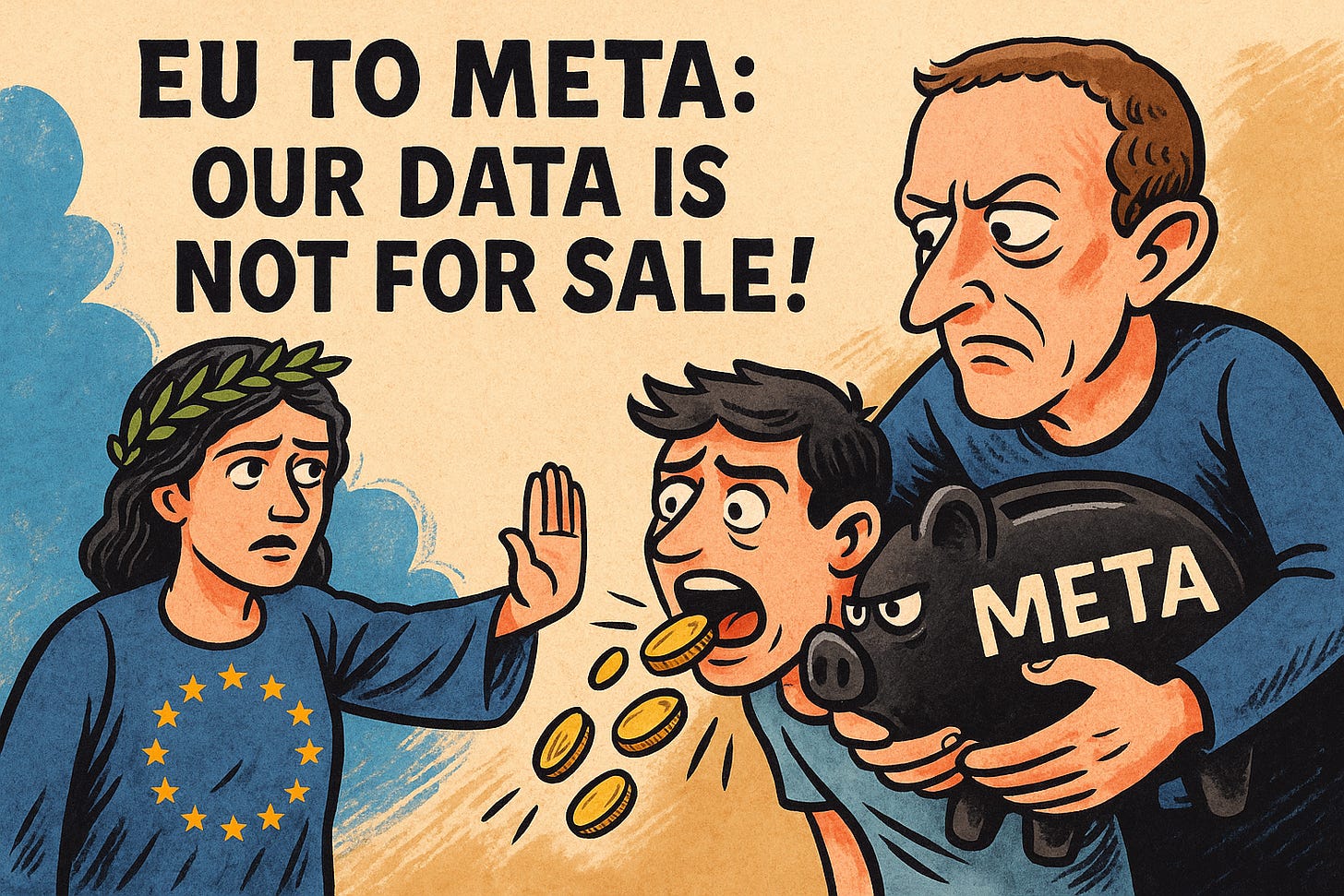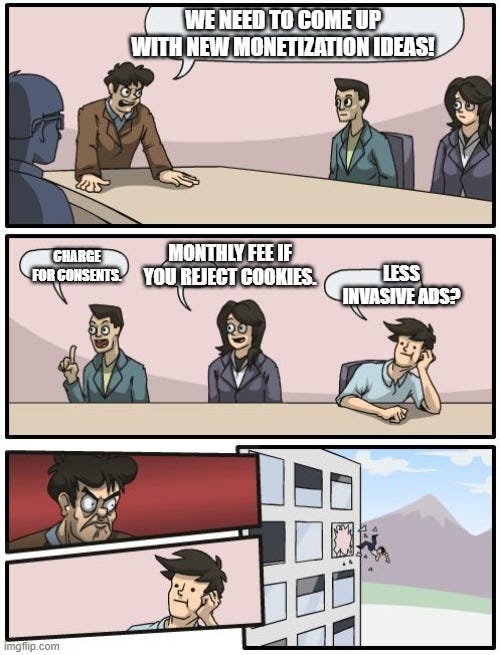🚫💰 Meta, “consent or pay”? The EU isn’t buying it
Privacy isn’t for sale: The EU Court rejects Meta’s “consent or pay” model, shaking up the debate on data and user choice.
Imagine finding out that, to use your favorite social network without being tracked, you'd have to pay a hefty monthly fee. Sounds absurd? Well, that was Meta's tactic, tested in Europe, charging around €13 per month from users who wanted to avoid personalized ads. Either you handed over your data, or your money. Now, the European Union has given a loud and clear "no" to that mess.
On April 29, 2025, the EU General Court rejected Meta’s attempt to overturn an opinion from the European Data Protection Board (EDPB) that criticized the "consent or pay" model. The tech giant got a cold shower: the judges pointed out that the opinion doesn't even have legal force, so it can’t be challenged. In other words, Meta lost the fight, and the opinion still stands.
The EDPB made it clear in its opinion that giving users only two options – “accept being tracked or pay not to be” – does not count as freely given consent, because if someone feels forced to agree simply because they can’t afford to pay, it’s not a real choice (and I agree!). It also suggested that platforms should offer an equivalent free alternative (like non-personalized ads). Personal data is not a commodity, and privacy is a right for everyone, excluding those who can’t pay from an essential service goes against that principle.
Meta claimed that the EDPB’s opinion targeted its empire of personalized ads and would cause serious financial harm (poor thing). Without being able to rely on this “workaround” of forcing consent through payment, the giant will now have to rethink how to profit from our clicks. Maybe it’ll need to invest in less invasive advertising, like contextual ads or sponsored content, who knows, right?
From the user’s perspective, the message is powerful: the EU is making it clear that privacy shouldn’t be a luxury for the few, it should be the default. No one should have to choose between being surveilled online or being excluded from digital life. This pressure on tech giants might actually push for innovation, services that respect user choice, and privacy policies that don’t rely on trickery. In the end, it’s a constructive wake-up call: the industry needs to remember that if something is “free,” the price can’t be the user’s digital dignity.
This EU ruling challenges that old cliché we hear in every innovation talk: “If it’s free, you’re the product.” Well… maybe it’s time to update that saying. Meta, and the entire industry, will have to figure it out: either offer users a real choice, or face bigger fines and consequences. The EU Court didn’t just shut down Meta’s plan! It threw down the gauntlet: how far are you willing to go for someone else’s data? Privacy is not for sale.




